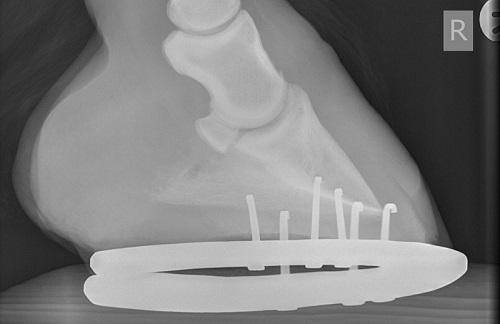New Equine Locomotor Research Course at the Royal Veterinary College
The Royal Veterinary College (RVC) is launching a new Graduate Diploma in Equine Locomotor Research (Grad Dip ELR), which offers farriers the opportunity to gain skills and experience in producing original research to increase the evidence base behind farriery, and enhance equine welfare.
The Grad Dip ELR is a UK Higher Education Level 6 course which can be taken over a minimum of two and a maximum of five years. The course is divided into two distinct sections, Contemporary Study Skills and Applied Equine Locomotion, and will be delivered using a variety of methods including face-to-face learning sessions on weekends, webinars and podcasts to facilitate participation of the busy practitioner.
Admission will be open to all farriers who are eligible to be registered with the UK’s Farriers Registration Council and have a minimum of two years’ practical experience in advanced foot care. Application forms can be downloaded from the Grad Dip Equine Locomotor Research course page. The RVC would consider applications from individuals who can demonstrate the necessary experience in advanced foot care and provide evidence of reflective practice in the form of an extensive portfolio.
 The course will be led by Dr Renate Weller who is Professor in Comparative Imaging and Biomechanics and by Dr Thilo Pfau is Senior Lecturer in Bioengineering and will be supported by other members of the Structure and Motion lab, the Equine Referral Hospital and the epidemiology group.
The course will be led by Dr Renate Weller who is Professor in Comparative Imaging and Biomechanics and by Dr Thilo Pfau is Senior Lecturer in Bioengineering and will be supported by other members of the Structure and Motion lab, the Equine Referral Hospital and the epidemiology group.
They will be joined by Dr Rachel Davis, Learning Development Manager and her team who have vast experience and with vocational learners returning to education.
Professor Renate Weller said: “I am super excited by this course. As an equine clinician, I cannot emphasise enough the importance of farriery in the prevention and treatment of lameness in horses. As a researcher, I am excited to be able to work with people who have the practical experience and knowledge to generate scientific evidence for farriery strategies. It is a historic moment for the RVC - after 225 years we are welcoming back farriers and I am very honoured to be leading this endeavour. The most common problem in equine practice is lameness and I am sure we will see great research coming out of this that will help us to work in a team to improve equine welfare.”
Major (Retd) Richard Waygood MBE, said: “Within my capacity as Performance Manager for the GB Dressage Team we are always trying to find a competive advantage. I believe this course will enable science and practical farriery to provide factual evidence which will help produce the X Factor which generates the marginal gains that are required in the competition field. The flip side of course is horse welfare - no foot, no horse! A great initiative that will provoke the brain cells and create some thinking outside of the box.”
The RVC is the UK’s largest and oldest veterinary school and has a substantially greater number of students and a more diverse student body than any other UK veterinary school. Research at the Royal Veterinary College is of international quality and the RVC’s Structure and Motion lab is home to the largest research group and most extensive facilities dedicated to animal locomotor biomechanics with the horse at its centre. The clinical facilities combined with the expertise of the equine group provides the ideal ground for this course.
If you would like more information about the course please contact: farriery@rvc.ac.uk. Application forms and full details of the course including a provisional timetable for 2017-18 are available on the Grad Dip Equine Locomotor Research course page.
